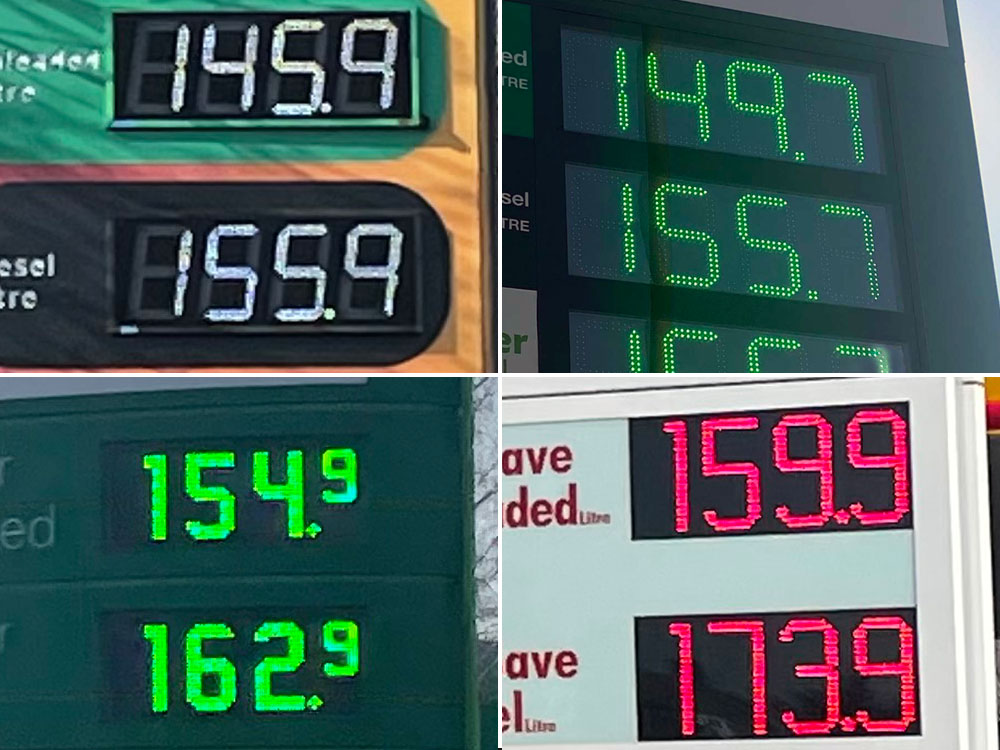by Madeleine Jenkins and Jason Whiting
Fuel prices are skyrocketing – but you could still make savings in York if you shop around.
That’s what we found after a survey of some of York’s petrol stations yesterday afternoon (Tuesday, 8 March).
We discovered as much as a 14p a litre difference on the price of unleaded, and an 18.2p a litre difference on diesel.
Our survey wasn’t exhaustive, but took in a lot of the most popular petrol stations in the city.
On the Asda forecourt at Monks Cross, we found disgruntled driver Michael Johnson who spoke for a lot of us when he said: “After the recent rise in energy bills, the last thing we need right now is high fuel prices.”
Bear in mind these prices were correct as at Tuesday afternoon, but the fuel price is volatile and may have changed. But it serves as a snapshot.
When we went round we found the lowest price for unleaded at Sainsbury’s, Monks Cross – £1.45.9 per litre.
The highest price was at the Shell Inner Space Stations petrol station on Hull Road at £159.9 per litre.
For diesel, the lowest price was at Morrisons, Foss Islands at £155.7 per litre.
The highest price was again at the Shell petrol station on Hull Road at £173.9 per litre.
Here are the full prices:
BP, Hull Road
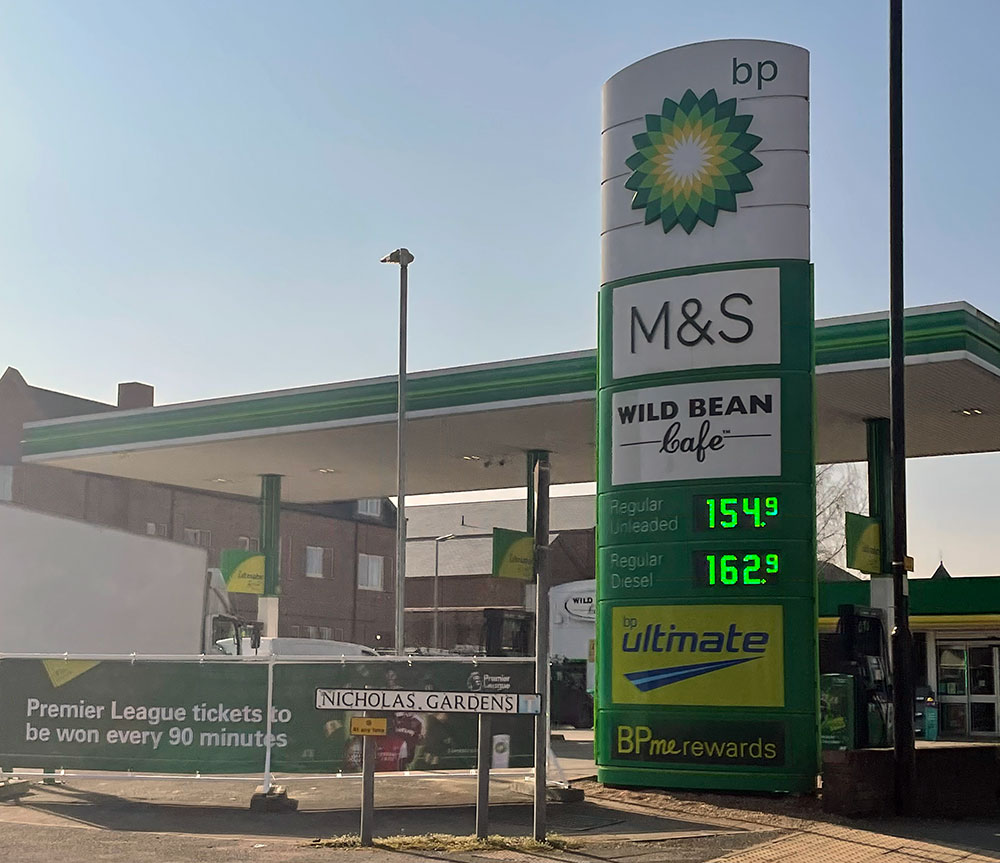
- Unleaded: 154.9
- Diesel: 162.9
Shell, Hull Road
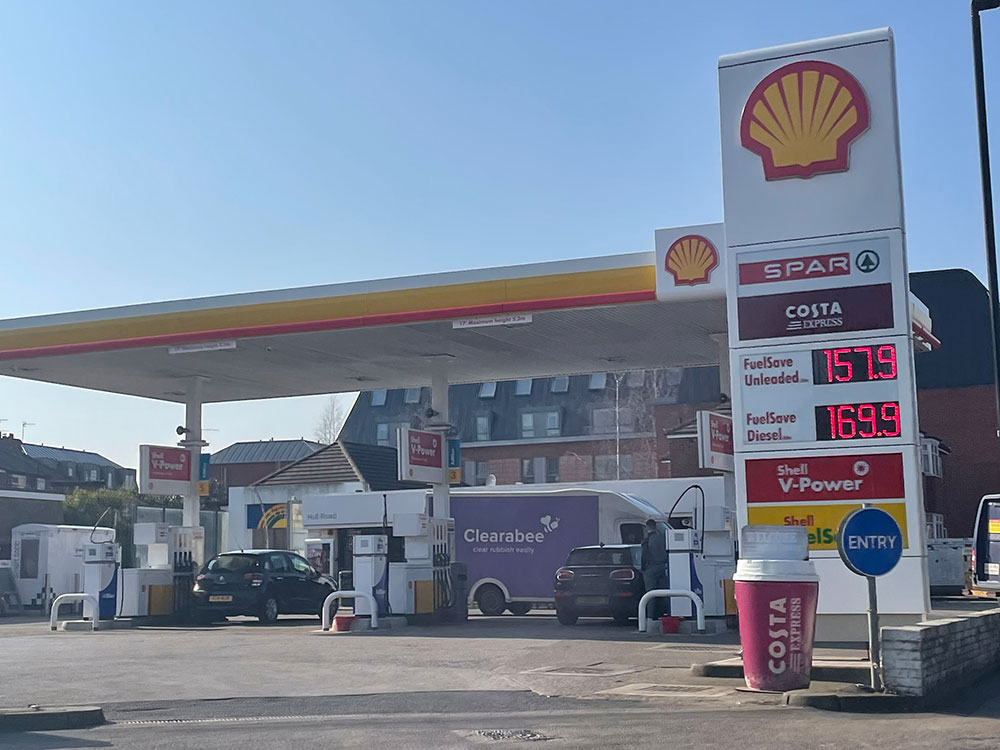
- Unleaded: 157.9
- Diesel: 169.9
Shell, Inner Space Stations, Hull Road
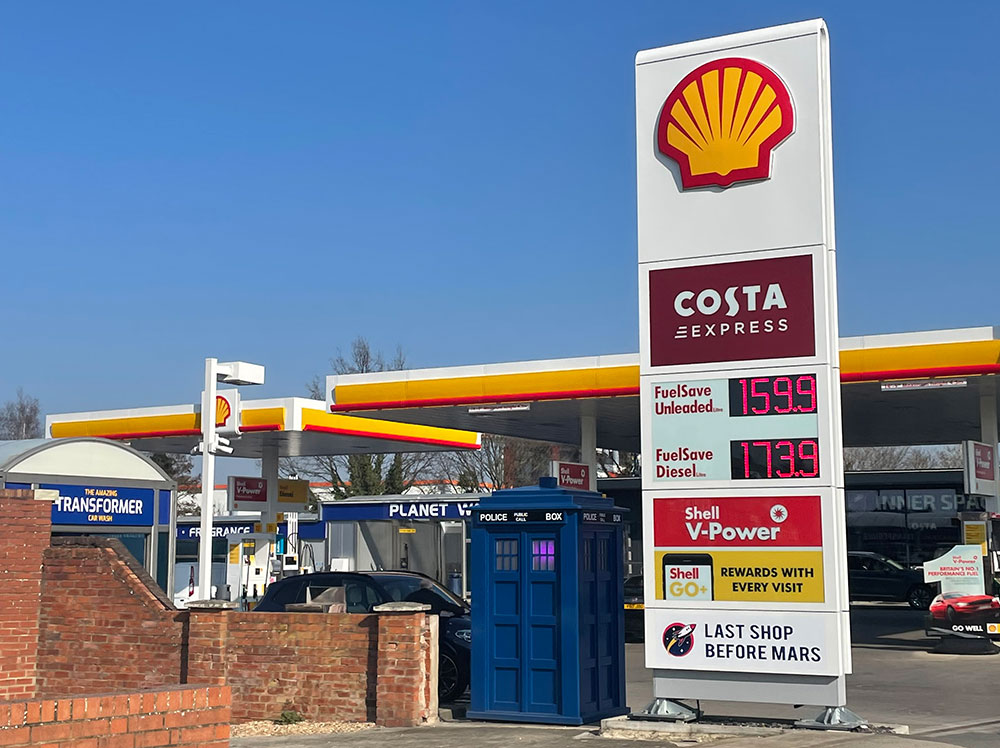
- Unleaded: 159.9
- Diesel: 173.9
Inner Space told YorkMix:
“Russia is the second biggest oil producer in the world and the third biggest producer in terms of refined fuel products. Almost 20% of the UK’s diesel is imported from Russia.
“As a business will always attempt to be as competitive as possible. Unfortunately for us as a family-run independent business, the supermarkets have the upper-hand.
“The supermarkets buy their fuel on a 2 week lag. This means the fuel they sell today is based on the cost price 2 weeks ago. So when the cost prices soar the supermarkets are still buying fuel at a substantially lower price than independent fuel retailers like us.
“The cost of our fuel is based on the Platts commodity price assessment for North West Europe.
“The price which customers see on our pole sign are made up of lots of factors including: motor fuel duty; fuel refinery and terminal charges; distribution costs; oil supply company margin; our margin; and VAT.
“When prices are volatile and increasing on a daily basis, having fuel delivered from the oil company based on a previous day’s price means that it is extremely difficult to remain competitive.
“If you take the average of last two weeks’ prices, petrol and diesel have risen by over 19 and 28 pence per litre respectively.
“A forecourt operating on a previous day price would have to pass on these huge cost increases immediately. Not doing so would be commercially unviable, but this leads to big and often daily price differences.
“High fuel volume forecourts like ours buy in fuel almost daily unlike smaller operators who can go for up to a week between tanker deliveries. This means they are able to hold their prices for longer while still retaining margin.
“We don’t have this luxury which is why you will see our prices changing often. Also, unlike the supermarkets we are often forced to pass on some of these extra costs onto our customers.
“It’s because of these pressures that we have to rely on retail shop sales and other revenues streams like self-storage to remain competitive and to make a profit.
“Taking into account the increases in energy costs and minimum wage increases this year, the average petrol forecourt in the UK costs over £20,000 a month to run. Fuel volumes are still around 90% of pre-covid levels and fuel margins remain between 4 and 8 pence per litre depending on price sensitivity of the local area, since Covid.
“However, the fuel margins in the coming weeks will inevitably reduce as we try and remain as competitive as possible within the York market.”
[adrotate group=”3″]
Asda, Monks Cross
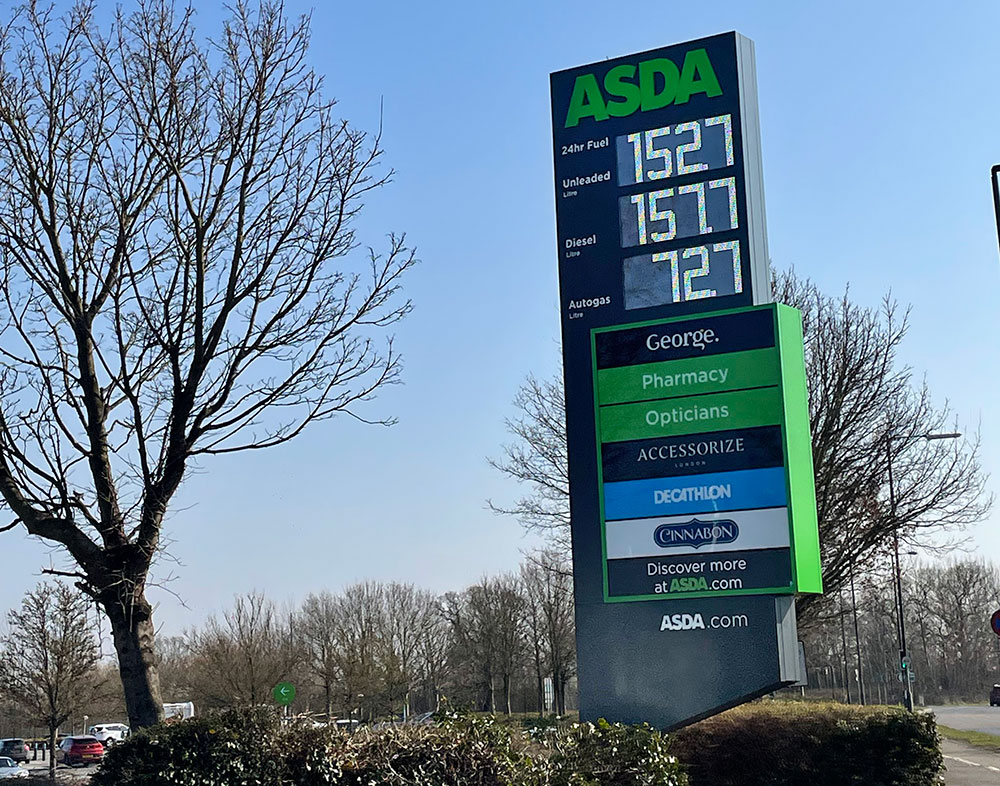
- Unleaded: 152.7
- Diesel: 157.7
Morrisons, Foss Islands
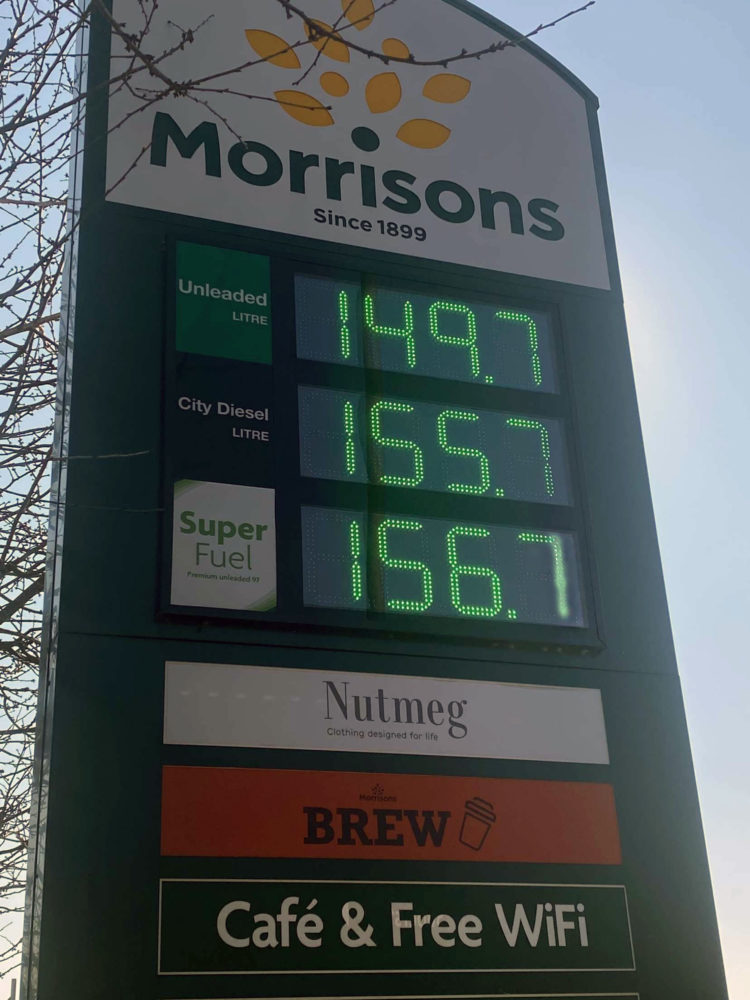
- Unleaded: 149.7
- Diesel: 155.7
Sainsburys, Monks Cross
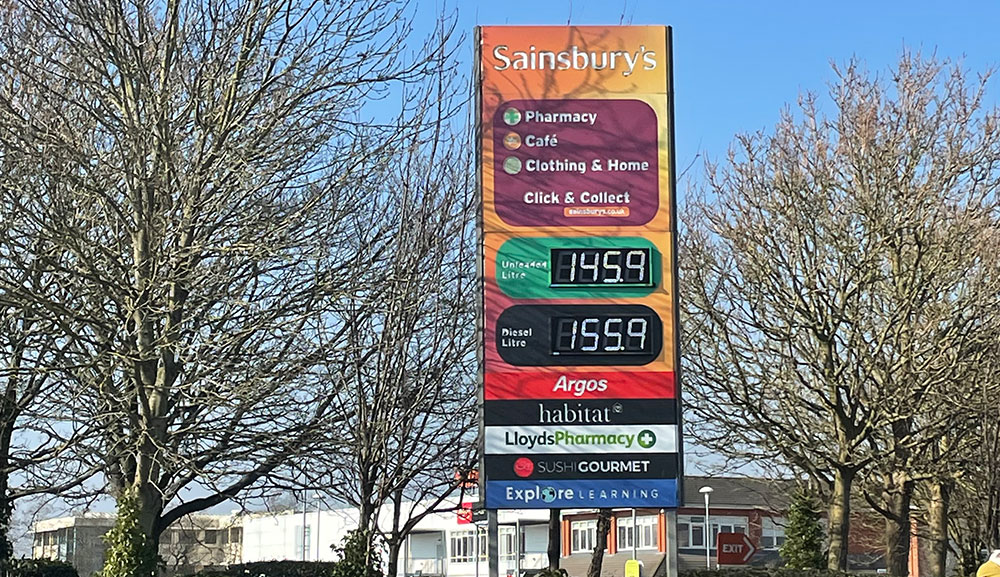
- Unleaded: 145.9
- Diesel: 155.9
Why are prices rising?
Recent price surges came as an impact of sanctions levied against Russia after their invasion of Ukraine. Russia is the second-largest oil and gas producer in the world, producing more than 4.5 million barrels of oil per day, with only Saudi Arabia producing more.
This means that any disruption to their fuel production has a knock-on effect on fuel prices all over the world.
Gordon Balmer, executive director of the Petrol Retailers Association, said, “Over the last 24 hours, the price of oil has increased due to concerns over the events in Ukraine.
“We expect the rise in global prices to continue and be reflected in UK pump prices, as is the case all over the world.”
In recent years, Russia has accounted for just 10 per cent of fuel imports in the UK.
What is the impact on businesses?
The industry that will be most impacted by fuel rising would be road hauliers. Rod McKenzie, executive director of the Road Haulers Association (RHA), said: “Ours is a low margin industry – the average haulage business makes an annual profit of 3%.
“Put another way, the weekly profit of a truck of may be £80 but the increase in the price of fuel can equate to between £77-£87 per week per truck, thereby completely wiping out any potential profit.”
The RHA has urged the government to intervene to help mitigate the losses to road hauliers, from freezing fuel duty for a further two years to providing more lorry parking facilities which would be properly funded to plug the current acute shortage.
